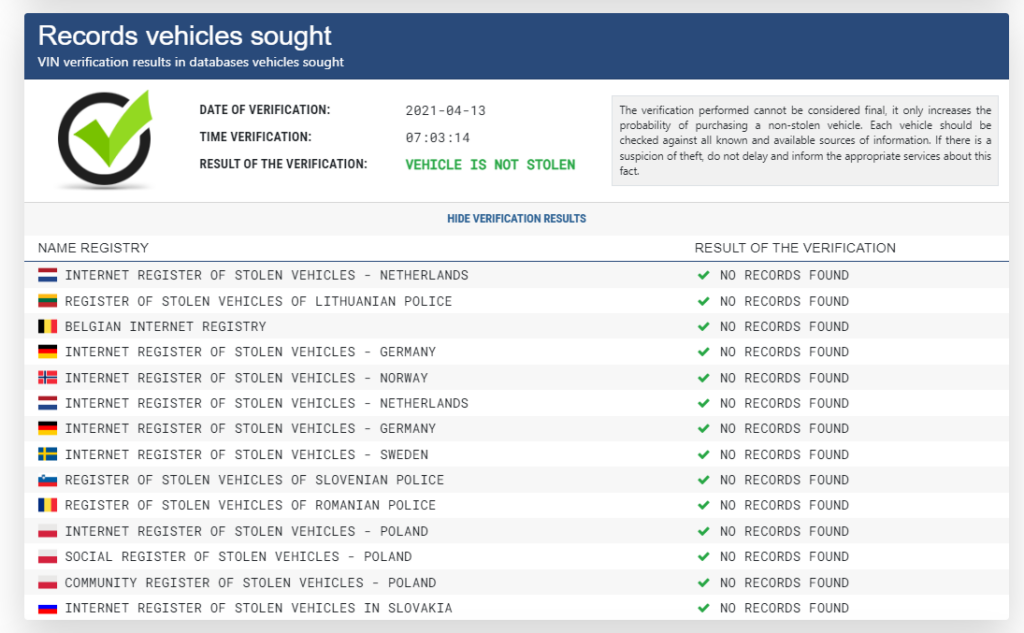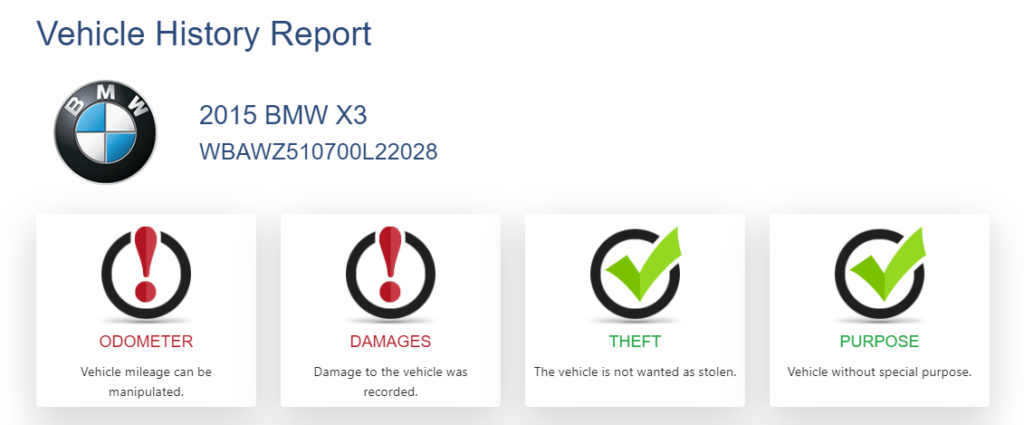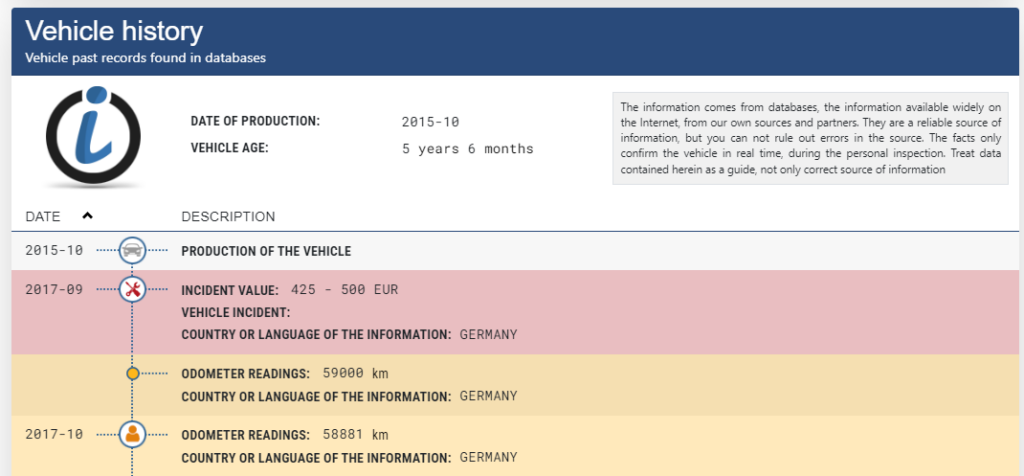
When engaging in the buying, selling, or even just owning a vehicle, having a deep understanding of its history not only empowers you but also acts as a crucial safeguard in any automotive deal. The role of a vehicle history report, obtained through a detailed check of the car’s number plate and records, is vital in shedding light on the car’s previous experiences and condition. This insight is particularly valuable in the used car market, where the background and state of a vehicle are key factors in determining its value and desirability.
For sellers, a comprehensive vehicle history report can greatly enhance the vehicle’s appeal to potential buyers by offering concrete evidence of its history and current condition. On the flip side, buyers gain a protective layer that shields them from potential hidden problems, securing their investment. Hence, vehicle history checks stand as indispensable tools, bridging information gaps and creating an environment of trust and transparency between buyers and sellers.
By delving into what a vehicle history report includes, how to interpret its findings, and recognizing its importance within the automotive industry, we aim to equip you with the insights needed to confidently and wisely manage vehicle transactions.

What is a Vehicle History Report?
A vehicle history report acts as a comprehensive dossier, chronicling the life of a car from its initial registration through to its current status. By leveraging the unique Vehicle Identification Number (VIN), it aggregates data from a multitude of sources such as insurance companies, repair shops, and law enforcement agencies to offer a panoramic view of the vehicle’s history. This can include critical information like: odometer readings, title status (including any salvage titles), and even flood or fire damage, providing a thorough insight into the vehicle’s condition and history. Such depth of information makes the vehicle history report an indispensable tool, not just for those interested in buying or selling, but also for current owners who wish to understand the full backstory of their vehicle. This level of transparency is crucial in the pre-owned car market, where the physical inspection alone cannot uncover all potential issues or the complete history of a vehicle.

Why It Matters
The significance of grasping a vehicle’s history extends beyond mere transactional benefits—it’s about ensuring safety, reliability, and value retention. For buyers, delving into a vehicle history report can reveal crucial red flags, such as a history of major accidents or mechanical failures, that might not be evident during a physical inspection or test drive. This level of insight can prevent the future burden of costly repairs or safety concerns that come with purchasing a vehicle that has been compromised in the past.
Conversely, for sellers, presenting a detailed and transparent vehicle history report can serve as a testament to the vehicle’s upkeep and integrity, making it more attractive to potential buyers and justifying a higher asking price. Moreover, this transparency fosters trust in the transaction, creating a smoother sale process and helping both parties feel confident in the fairness of the deal.

Vehicle history reports offer a suite of features that not only enhance the buying and selling experience but also add layers of security and financial prudence to the process. Here are four notable features:
Time Saving: One of the most practical benefits of a vehicle history report is the considerable amount of time it saves. Potential buyers can assess the desirability of a car before making the trip to view it, especially if the vehicle is located a significant distance away. This pre-verification process allows you to decide whether it’s worth pursuing, sparing you the inconvenience of traveling to inspect a car that doesn’t meet your standards or has a questionable history.
Cost Efficiency: The detailed insights provided by vehicle history reports can lead to substantial savings. By outlining past service procedures and maintenance history, these reports enable buyers to compare the reported condition with the current state of the vehicle. This comparison can highlight the need for future investments, such as scheduled inspections, timing belt replacements, or new brake pads, allowing buyers to budget for these expenses upfront or negotiate the sale price accordingly.
Safety Assurance: The safety of you and your loved ones is paramount, and vehicle history reports play a critical role in ensuring it. By revealing whether a car has been involved in severe accidents, declared a total loss, or reconstructed from multiple vehicles, these reports help you avoid buying a potentially unsafe vehicle. Understanding the vehicle’s past allows you to make informed decisions, prioritizing safety and reliability in your choice.
Stolen Vehicle Identification: Lastly, vehicle history reports can alert you to whether a car is listed as stolen. Purchasing a vehicle that appears on the list of wanted vehicles can lead to significant legal complications, including the possibility of the car being confiscated and kept in police custody or facing accusations of receiving stolen goods. This feature is invaluable in avoiding the financial loss and legal troubles associated with unwittingly buying a stolen vehicle.
In essence, vehicle history reports are designed to provide peace of mind and protect consumers from unforeseen issues, ensuring that every aspect of the vehicle’s past is considered before making a purchase or sale.
Key Components of Vehicle History Reports
Vehicle history reports are indeed invaluable resources, packed with a wealth of data that sheds light on the comprehensive background of a vehicle. In addition to ownership history, accident records, service records, and title status, these reports often include:
Mileage Verification: To combat odometer fraud, these reports verify the accuracy of a vehicle’s mileage and provide a timeline of recorded mileage at various service intervals.
Theft Records: They reveal if the vehicle has ever been reported stolen, offering an extra layer of security and peace of mind for potential buyers.
Flood, Fire, and Hail Damage: Specific details on whether a vehicle has suffered damage from natural disasters, which could significantly impact its functionality and value.

Each piece of information contributes to a fuller understanding of the vehicle’s history, allowing buyers and sellers to engage in transactions with a clear picture of the vehicle’s past and present condition. This comprehensive overview not only ensures transparency but also aids in making well-informed decisions regarding the purchase or sale of a vehicle.
How to read vehicle history reports
Reading these reports might seem daunting at first glance but fear not. Focus on key sections like accident history and title status first. These areas provide immediate red flags if present. Additionally, pay attention to the odometer readings to check for any discrepancies that could indicate tampering. Ownership history can offer insights into how the vehicle was used, whether it was personal, leased, or part of a fleet. Finally, service records are invaluable for understanding how well the vehicle was maintained.
Interpreting Findings
Not all negative findings are deal-breakers. For example, minor accidents shouldn’t necessarily deter you if the car has been properly repaired. However, major issues like flood damage should raise alarms. It’s important to weigh the severity and the repair quality of any damages reported. Consulting with a trusted mechanic can provide a second opinion on the vehicle’s condition. Remember, a history of regular maintenance could outweigh a few minor blemishes in the car’s past.
The importance for buyers and sellers
For buyers, a vehicle history report is your shield against purchasing a lemon.
It empowers you with facts to negotiate better deals or walk away when necessary.
It can also guide you to ask the right questions about the vehicle’s past, ensuring you make a well-informed decision.
For sellers, providing transparency builds trust with potential buyers.
A clean report can justify asking prices and expedite sales processes.
It serves as a badge of honor, showcasing the care and investment put into the vehicle, making it more appealing to prospective buyers.
Choosing the right service for vehicle history reports
Not all services offering vehicle history reports are created equal. Look for providers that source comprehensive data and offer user-friendly reports. Ensure the service updates its data frequently to provide the most current information. A good report should be easy to read, with clear summaries of the key findings and detailed explanations for all entries.
Why choose automoli.com
At Automoli.com, we pride ourselves on delivering detailed reports that are easy to understand. Our commitment to accuracy ensures you receive reliable information every time. We continuously refine our data sources and reporting techniques to offer the most up-to-date and comprehensive insights, making it simpler for our customers to interpret and use the information effectively in their decision-making processes. It is worth checking the ranking of vehicle history services.
Summary
Understanding the depth and breadth of vehicle history reports is critical, whether you’re entering the market as a buyer or a seller. Incorporating checks for engine size, previous ownership, structural integrity, and potential hidden histories ensures a more secure transaction. Opting for reputable sources like AutoMoli.com to obtain these reports can significantly enhance the reliability and satisfaction of your automotive dealings. It is worth checking the ranking of vehicle history services.
FAQ
While vehicle history reports offer invaluable insights, they are based on reported data.
This means some details, like unreported structural damage or a hidden history of repairs, might not be included.
Additionally, always keep in mind that there can be a delay before an event gets reported.
Even the most thorough vehicle history report might not contain data on incidents that occurred very recently.
It’s always recommended to have the vehicle checked by a professional mechanic or at a vehicle inspection station as well.
A vehicle history report is a crucial first step in filtering out less desirable options, but it should not be the only tool used in assessing a vehicle’s condition.
It’s advisable to perform a vehicle history check before any purchase or sale.
For current owners, occasional checks are recommended to stay informed about any newly reported issues, changes in the number of previous owners, or updates from finance companies.







